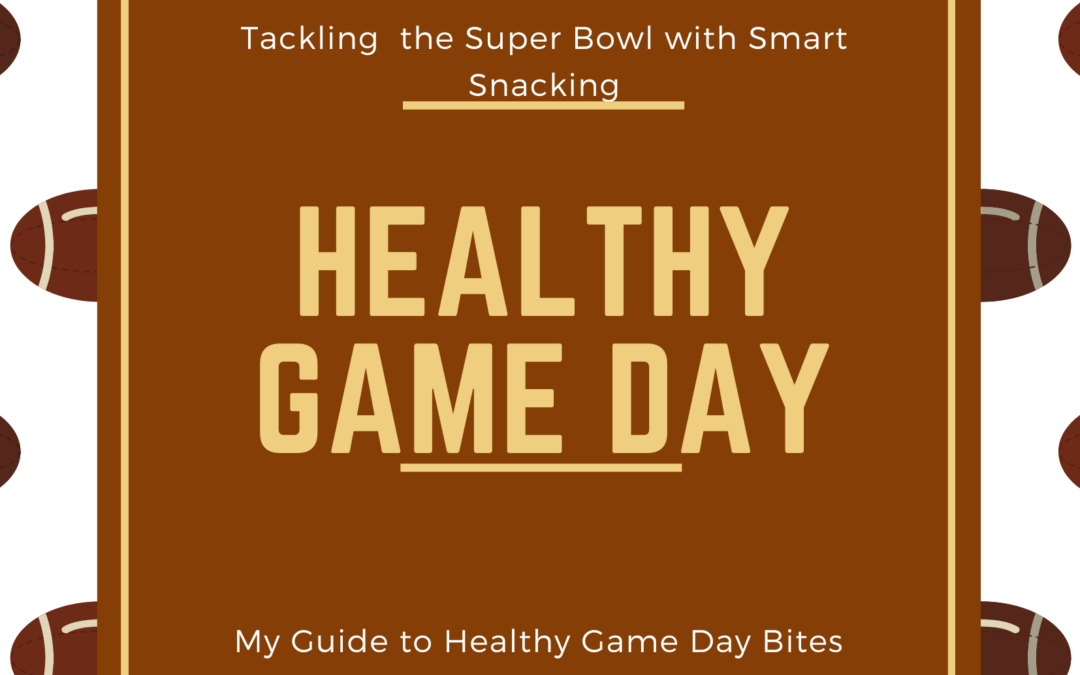
October is Breast Cancer Awareness Month, which is an annual campaign to increase awareness of the disease. One in eight women will develop breast cancer over the course of her lifetime. The risk of breast cancer rises dramatically during the 30s through mid-70s while the majority of cases occur in women 40 and over. Ladies, it’s important to educate yourself, your friends and loved ones on how to reduce breast cancer risk.
Earlier this month, I had the opportunity to attend Dr. Tamyra Comeaux’s talk on breast health and breast cancer risk reduction at Transformation Enzymes Corporation, a manufacturer of digestive supplements, enzyme supplements and probiotics. She delivered a great presentation, which was based on her extensive research and years of experience as an OB/GYN doctor. She refreshed my knowledge on the diet and nutrition aspects of breast health. I also learned something new about protecting your telomeres: why we should work on rehabilitating our microbiome and why we should consider DNA methylation. She definitely piqued my curiosity and desire to dig deeper into the science and most current research on breast health and natural ways to reduce breast cancer.
All women should know this information. I was so enlightened, I decided to write this article in order to reach out and inform women during Breast Cancer Awareness Month.
Dr. Comeaux emphasized how women can reduce their risk of breast cancer by following her natural prevention plan. This natural plan comprises her 6 top tips for breast health and cancer risk reduction including:
- Diet
- Supplemental use
- Re-thinking your use of cleaning and body care products
- Protecting your telomeres
- Rehabilitating your microbiome
- Consider DNA Methylation
Dr. Comeaux’s first tip was the importance of a good diet in her natural plan for breast health and cancer risk reduction. She highly encouraged everyone to eat well, local and organic food. She also mentioned that we should consider taking supplements to replace nutritional deficiencies. At this point, it’s not proven that one diet is the best for cancer prevention, but here is a list of a few worth considering:
- Mediterranean Diet
- Fasting Mimicking Diet (5 days a month)
- Vegetarian Diet
- Gluten and/or Dairy Free Diet or Virgin Diet
- Test for food sensitivities and eliminate them
- Reduce inflammation (Autoimmune Paleo)
- Pick a Blue Zone
Based on studies and research, we do know the overall incidence of cancer is lower in Mediterranean countries compared to the United States, United Kingdom, and the Scandinavian countries. The Mediterranean diet is built on a common core of a diet rich in plant foods, whereas the Western diet (the American diet) is rich in animal foods and poor in plant-based foods. Keep in mind, it is important to incorporate whole grains, vegetables, fruit, and plant-based proteins.
In the book, The Blue Zones, written by Dan Buettner, he describes five known Blue Zones. The Blue Zone areas are areas in the world that are associated with extremely high rates of nonagenarians and centenarians, or people who live over 90 and 100. These blue zone areas include Icaria (Greece), Ogliastra, Sardinia (Italy) Okinawa (Japan), Nicoya Peninsula (Costa Rica) and The Seventh-day Adventists in Loma Linda, California(USA).
Dr. Comeaux also mentioned these 7 main supplements to consider for breast cancer prevention:
- Vitamin C
- Vitamin D
- Inositol
- Omega 3
- Magnesium
- MSM
- Chromium
In this article, I will focus strictly on vitamin C. As Dr. Comeaux mentioned, it is the most important vitamin for breast cancer prevention and for its treatment. Vitamin C can easily be obtained from the foods we eat, such as fruits and vegetables and it’s also the least expensive supplement you can take. After listening to Dr. Comeaux’s talk, I now understand why vitamin C is so important in breast cancer prevention and its treatment. Dr. Comeaux explained that mammals who make their own vitamin C produce massive amounts of vitamin C compared to what we humans get in our modern diet. For example, a 156 pound goat, unstressed and healthy, produces on average about 13,000 mg of vitamin C a day. This is over 200 times more than the current RDA of 60 mg a day for humans.
Based on research, our bodies are not capable of making as much of Vitamin C like other mammals are capable of doing. Moreover, researchers say that the ability to produce vitamin C gives those mammals, such as goats that naturally produce it, a powerful healing tool that enables them to live much longer than they would otherwise. Researchers discovered decades ago that most cancer patients are deficient in vitamin C, especially those in advanced stages of cancer. Researchers explain that because cancer cells get most of their energy from glucose, they may mistake vitamin C for glucose because vitamin C is made from glucose, so their structure is similar. In this type of scenario, vitamin C is gobbled up causing low levels in people with advanced cancer. High doses of vitamin C used to treat cancer patients is effective because the cancer cells absorb a large amount of the vitamin C. The vitamin C interacts with copper and iron and produces small amounts of hydrogen peroxide. When hydrogen peroxide builds up in cancer cells, it eventually kills the cancer cells.
She also mentioned that we should rethink our cleaning and body care products by avoiding parabens, phthalates and other possible carcinogens, which may be found in the products we are using. She recommended fragrance-free products and to consider Henna hair color. You can also go to: www.safecosmetics.org to find out about the safest products to use on your body.
Protecting your telomeres was her fourth tip. Aging cells greatly increase your risk of deadly cancer—even if you’re still relatively young. Cells stay young as long as they are able to repair their own DNA. That’s up to the telomeres, which are the proteins at the end of each chromosome. Though every time the cell reproduces, its telomeres get shorter. A startling new study now shows that people who accumulate a lot of cells with short telomeres have greatly increased risk of fatal cancers. She mentioned four supplements that may be beneficial in protecting your telomeres: Astragalus, Resveratrol, Green Tea and Quercetin.
Her fifth suggestion was to rehabilitate your Gut microbiome. Your liver is the primary organ responsible for either stopping or allowing this buildup of toxins. One of its many jobs is to filter the blood of toxins and send them out of the body. After years of removing more toxins than it was ever designed to remove, liver function weakens. Years of poor quality food found in the typical modern diet will have disrupted its ability to do its job properly. So, you end up with a poorly performing liver that cannot communicate effectively with the brain. And, Dr. Comeaux, says “this leads to a brain that is unable to effectively command the immune and nervous system.” To improve your microbiome, I recommend eating a lot of fresh, whole fruits and vegetables, legumes and whole grains, moderate amounts of fish and chicken and small amounts of beef or lamb. Dr. Comeaux suggests some supplements, which can aid in rehabilitating your Gut microbiome and they are: probiotics, digestive enzymes, resveratrol, green tea, ginger and grape seed extract.
According to Dr. Comeaux, your microbiome is housed in your gut and other openings of your body such as your mouth, your genitals and your nose. When your gut microbiome is balanced, you stay healthy, you are in a good mood and you have a lot of energy. When your gut microbiome is out of balance, you are setting yourself up for a host of health issues, including weight gain, diabetes, brain fog and cancer. Speaking of cancer, in recent years, an abundance of research has emerged linking dysbiosis of the gut microbiota to various forms of cancer. Researchers have also discovered that cancer patients have a significantly altered gut microbiota compared to healthy controls, as well as imbalances in the tissues such as breast and endometrium. She also mentioned that your microbiome changes after menopause.
Dr. Comeaux’s final recommendation was to consider your DNA methylation. According to researchers reporting in the Journal of Nutritional Biochemistry, reducing oxidative stress, cellular inflammation and improving DNA methylation pathways can extend telomere length and slow the biologic aging clock. Specific nutrients provide the necessary building blocks to support DNA health and extend your natural lifespan. Dr. Comeaux says genetic expression is not set in stone and our genes are continually under the influence of our environment, lifestyle and dietary choices. Gene settings are made initially from our time in the womb, based largely on the nutritional status of the mother. Additionally, researchers have identified a host of polyphenol compounds that lower systemic inflammation, help to maintain telomere length and extend healthy lifespan. These polyphenol compounds are Resveratrol, Grape Seed Extract, Ginger, Gingko Biloba, Quercetin and Pomegranate.
In summary, making healthy lifestyle choices is a good preventative for breast cancer. A key component in a healthy lifestyle is maintaining a healthy weight and adding consistent exercise to your routine. Limiting alcohol intake and balancing menopausal hormones can also help reduce your risk. We truly benefit from the choices we make over a lifetime.





